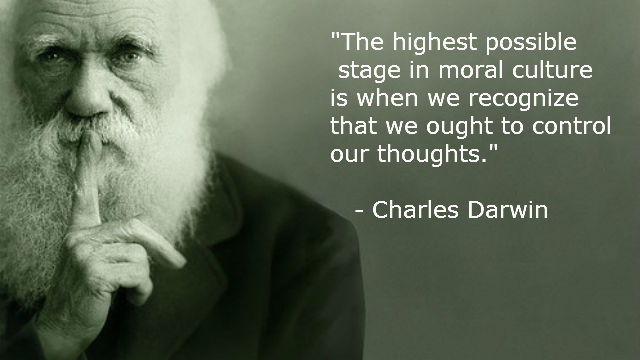It’s time to fight back against those who advocate THEIR values, and do US harm.

By 2002, Golden Rice was technically ready to go. Animal testing had found no health risks. Syngenta, which had figured out how to insert the Vitamin A-producing gene from carrots into rice, had handed all financial interests over to a non-profit organization, so there would be no resistance to the life-saving technology from GMO opponents who resist genetic modification because big biotech companies profit from it. Except for the regulatory approval process, Golden Rice was ready to start saving millions of lives and preventing tens of millions of cases of blindness in people around the world who suffer from Vitamin A deficiency.
It’s still not in use anywhere, however, because of the opposition to GM technology. Now two German economists have quantified the price of that opposition, in human health, and the numbers are truly frightening.
Their study estimates that the delayed application of Golden Rice in India alone has cost 1,424,000 life years since 2002. That odd sounding metric – not just lives but ‘life years’ – actually accounts not only for those who died, but quantifies the blindness and other health disabilities that Vitamin A deficiency causes (it’s full name is Disability Adjusted Life Years or DALYs). The majority of those who went blind or died because they did not have access to Golden Rice, were children.
These are real deaths, real disability, real suffering, not the phantom fears about the human health effects of Golden Rice thrown around by opponents, none of which have held up to objective scientific scrutiny. It is absolutely fair to charge that opposition to this particular application of genetically modified food has contributed to the deaths of and injuries to millions of people. The opponents of Golden Rice who have caused this harm should be held accountable.
That includes Greenpeace, which in its values statement promises that “we are committed to nonviolence”. Only their non-violent opposition to Golden Rice contributes directly to real human death and suffering. It includes the European Network of Scientists for Social and Environmental Responsibility which claims the credibility of scientific expertise, and then denies or distorts scientific evidence in order to oppose GMOs. It includes the U.S. Center for Food Safety and the Sierra Club and several environmental groups who deny and distort the scientific evidence on GM foods every bit as much as they complain the deniers of climate change science do. It includes the Non-GMO Project, started by natural food retailers who oppose a technology that just happens to threaten their profits.
Society needs groups like Greenpeace and other environmental organizations to hold big companies accountable when they put their profits before our health, as they too often do. But society also has the right to hold advocates accountable when they let their passions blind them to the facts and, in pursuit of their values, put us at risk. Let’s be absolutely clear. That is precisely what opposition to genetic modification of food is doing, as the study of the Golden Rice delay in India makes sobering clear.
And Golden Rice is just one example. There are several other applications of GM technology that could contribute to food security and reduce hunger and starvation. Skeptics like the Union of Concerned Scientists criticize GM technology for not having fulfilled this promise. But that’s because opposition has prevented most of these products from coming to the market in the first place. It’s pretty tough to keep a promise you’re not allowed to try to keep in the first place. Opposition to several GMO applications, based on fears that don’t stand up against evidence from extensive safety testing, is denying people food and nutrition, and doing real harm.
The whole GMO issue is really just one example of a far more profound threat to your health and mine. The perception of risk is inescapably subjective, a matter of not just the facts, but how we feel about those facts. As pioneering risk perception psychologist Paul Slovic has said, ‘risk is a feeling’. So societal arguments over risk issues like Golden Rice and GMOs, or guns or climate change or vaccines, are not mostly about the evidence, though we wield the facts as our weapons. They are mostly about how we feel, and our values, and which group’s values win, not what will objectively do the most people the most good. That’s a dumb and dangerous way to make public risk management decisions.
When advocates get so passionate in the fight for their values that they potentially impose harm on others, it puts us all at risk, and we have the right to call attention to those potential harms and hold those advocates accountable. And this is much broader than just GMOs:
To hold advocacy groups accountable, people could refuse to belong to or financially support these groups, and thus avoid personally contributing to the harm. They could belong to the groups but protest certain positions from within. They could chose to stand up to these groups in public meetings and respectfully challenge them to answer for the negative consequences and tradeoffs of what these groups espouse. A more skeptical press could challenge these groups about the harm that some of their positions can cause. Scientists can provide hard evidence about the negative impacts of the positions of these groups, as this new economic study does.
Scientists can also hold advocates accountable by demanding reasoned debate, in public forums, as GMO researchers did recently in the U.K. When anti-GMO groups threatened to trash field trials of GM wheat, researchers invited them to debate the issue first, in public, with this challenge to open-mindedness;
“You have described genetically modified crops as ‘not properly tested’. Yet when tests are carried out you are planning to destroy them before any useful information can be obtained.” “We do not see how preventing the acquisition of knowledge is a defensible position in an age of reason.”
Anti-GMO protestors, who claimed they were just trying to “Take Back the Flour”, first accepted, and then refused. The British press and many in the public held them accountable, rejecting the advocates’ closed-mindedness.
This needs to continue, and expand, on GMOs and any other emotional risk issue. Our values must always have a place in these debates. But when those values cause people to become so closed-minded and absolute that they deny or distort the evidence, and refuse to acknowledge the harmful consequences that our values can sometimes produce, it is fair for society to hold those advocates accountable for pursuing things so stridently that they are putting the larger community at greater risk.
This essay was first posted as a Guest Blog at Scientific American
(AFTER THIS BLOG WAS POSTED I LEARNED OF SOME EXCITING NEWS FROM AUSTRALIA, WHERE JUST YESTERDAY , THEIR ABC NEWS REPORTED THAT AN ANTI-VACCINE GROUP HAS HAD IT’S TAX-EXEMPT STATUS REVOKED AFTER A GOVERNMENT INVESTIGATION FOUND THAT THEY WERE PEDDLING MISINFORMATION THAT PUT THE PUBLIC AT RISK. BRAVO!




